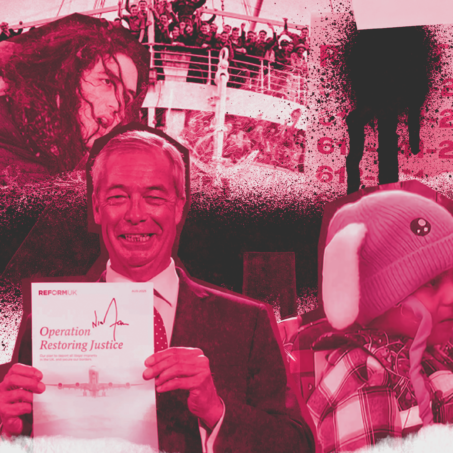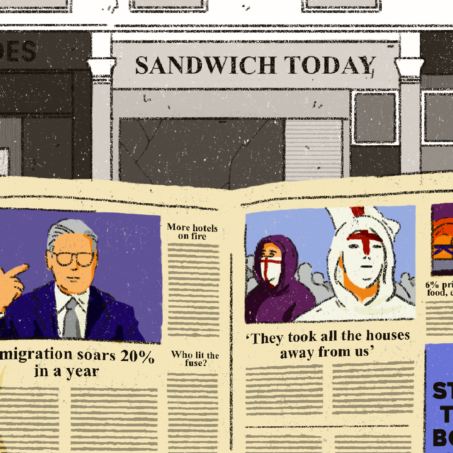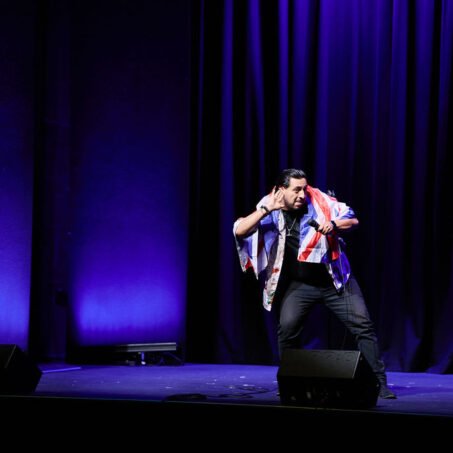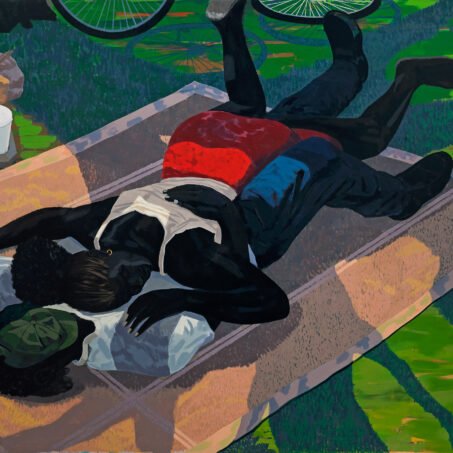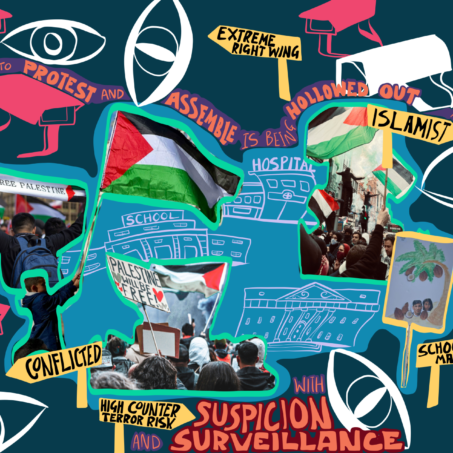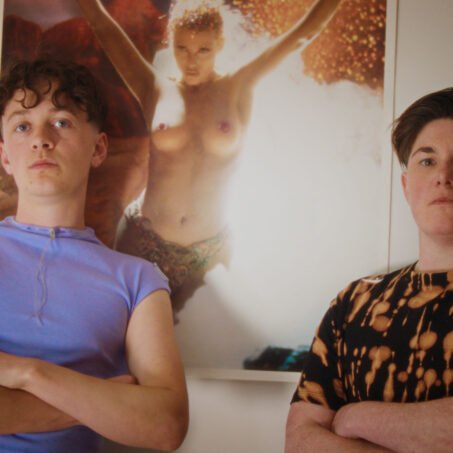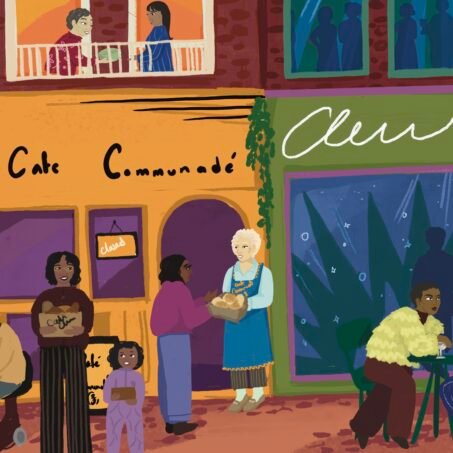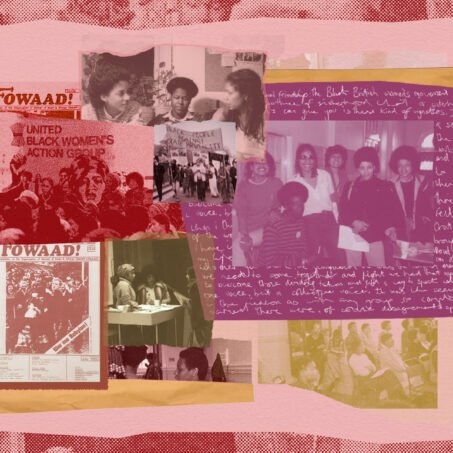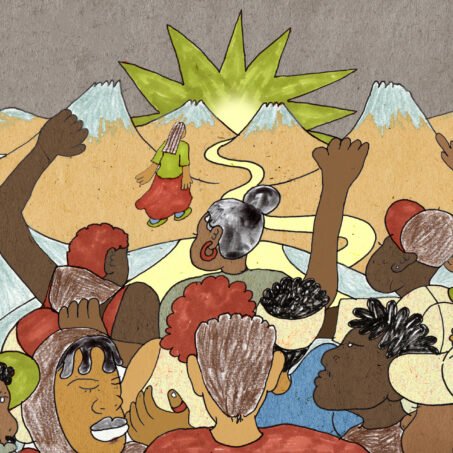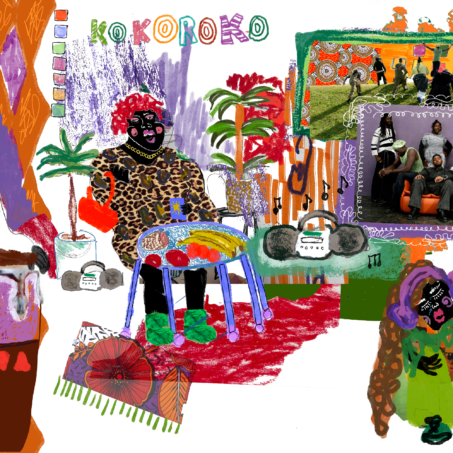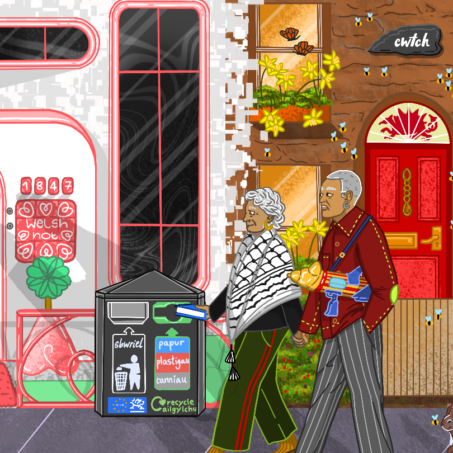It’s getting to the point where I’m grateful for any sort of representation on childhood sexual abuse in the media, no matter how clumsy it feels.
The parents in Nightmare on Elm Street deciding to deny their children’s trauma when flashbacks resurface? At least child sexual abuse is presented as horrific. Vigilante paedophile hunters beating up abusers in the street and posting it on YouTube? At least they’re reminding us that child sexual abuse is an underfunded issue. The grooming plotline in Season 4 of Netflix’s Sex Education which introduced and wrapped up the entire story in 5.83 minutes?* At least we were mentioned in a major TV show…
Though it took me a while to accept it, I now recognise myself as a survivor of childhood sexual abuse. I also know that it is extremely common, affecting at least 1 in 4 of us directly. I live everyday as a survivor of child sexual abuse, but I don’t see many of these experiences portrayed accurately and sensitively on TV. Not only that, but I’m a cis woman who was abused by an adult man when I was a girl. If you are to think about childhood sexual abuse, you are likely picturing a similar scenario to mine.
So what about people who were abused by women, other children or even groups? What about trans survivors, male survivors and disabled survivors? What about people who experience non-contact forms of abuse?
We don’t have much child sexual abuse representation on TV unless we are specifically searching for it. For some, these scenes may be triggering, but for others it can be validating to see their experiences on the screen – if done right.
I started thinking of scenes of childhood sexual abuse I’ve seen in British media, where abuse was not the main focus of the TV show or movie. I’ve watched a lot of TV, but I could only think of two notable scenes. Both focus on a young girl being abused by a man; all characters are white. In terms of the diversity of the experiences, it’s not a lot to go on, but I am interested in the portrayal of abuse, and how people react to the survivors sharing their stories.
I decided to rank each scene out of 5 based on a combination of 3 factors: the realism of themes explored in the scene, how the scene fits into the overall story and how accurately the abuse is dealt with by the surrounding characters. Of course, there are heavy spoilers in the following sections.
A young Dr Jean Milburn catches her sister Joanna being groomed, Season 4 Sex Education (2023)
What happens:
We open with a young Jean having an argument over spilt wine with her 12-year-old sister Joanna. They are at one of their mum’s parties and Joanna goes to the kitchen to get some salt for the stain. She is quickly followed by her mum’s boyfriend. Jean peeps through the door and sees Joanna sitting on the kitchen table, the man’s hand on her leg, moving further up towards her pyjama shorts. Joanna looks as though she is enjoying her conversation with him. Just before he can move his hand any further, Jean opens the door and demands the salt, catching the two off guard. The boyfriend makes his excuses and leaves. Joanna gets down from the kitchen table. As she leaves, she smugly tells Jean: “Don’t be jealous.”
What I think this scene does right:
- The abuse happens in plain sight in a family setting. Even under the watchful eye of a non-abusing family member, there will be pockets of time where abuse can happen, like in this example amid the hustle and bustle of a party environment. According to the Centre of Expertise on Child Sexual Abuse 2023 intra-familial report, abuse in the family environment accounts for almost half of all child sexual abuse offences reported to the police in England and Wales. This scene gives an appropriate and realistic portrayal of the everyday nature of abuse.
- Not all people being abused recognise what is happening to them. To me, the most powerful part of this scene is Joanna telling her sister not to be jealous. This is because the adult has used his position of trust to groom Joanna to the point that she believes she enjoys the experience. This is a common experience for people who are groomed: The Independent Inquiry into Childhood Sexual Abuse found that of the 6,000 survivors who took part in their nationwide research into abuse, 24% had been groomed and did not realise at the time. That’s 1,440 people in one study alone. Unlike other forms of abuse, sexual organs might be stimulated as part of the abuse leading to complicated feelings of intimacy and pleasure with the groomer.
Where I think the storyline can be improved:
- It’s too short. In just under six minutes, we see glimpses of a chaotic Joanna moving from place to place, a rather scatty intervention between the two sisters in the mud, and eventually, Joanna disclosing her abuse to her sister on her live radio talk show while her nephew listens in. This storyline was so scarce that it isn’t mentioned by a single major critic on Rotten Tomatoes, one of the most popular movie and TV review sites in the UK. The only review I found that came close to mentioning this storyline came from Cosmopolitan’s Lydia Venn, who said that the “story of childhood abuse felt like it was dropped in at the last moment.” In such a short timeframe, we can’t possibly understand the nuances of how such an experience can affect a person and their loved ones.
- I also found Dr Jean’s reaction when Joanna calls on to the therapy radio show jarring. Jean starts by affirming Joanna’s experience, but then goes on to share her own experiences of postnatal depression and accepting help. When I started my training as a mental health first-aider with Mental Health First Aid England, the first day of teaching was all about the importance of listening, and the risks of sharing personal traumas as a way of connecting with the person needing help. If this was a real therapy scenario it would be completely inappropriate, and even though it is meant as a sign of solidarity, it puts Joanna in a position where she then has to respond to a new disclosure in the middle of her own. Yes, they are sisters having a chat, but in this situation, Jean is acting as a radio host. We also don’t see any later discussions with main character Otis, who is learning about this family trauma for the first time on the radio.
Overall rating: 3/5
I’m glad to see a scene like this featured on a mainstream show, but felt like this storyline was shoe-horned in to prove a point. The handling of the disclosure on a live radio broadcast felt unrealistic, and the repercussions of Jean’s response were not fully explored.
Bianca explains to her daughter Whitney that she’s been raped: Eastenders (9th December 2008)
What happens:
In this heartbreaking scene, Bianca tells her confused 16-year-old daughter Whitney that she has been raped by her stepdad figure, and Bianca’s ex, Tony.
In a previous episode, Whitney told Bianca that she has been having, in her words, an “affair” with Tony since she was a young teen. Whitney had come to her adopted mother in confidence, telling her that she and Tony had made plans to run away and get married together now that she was 16, but is angry as now Tony has seemingly disappeared since Bianca heard the news.
In this scene, Bianca asks more about when this started and realises that Whitney was 12 at the time. Whitney is defensive of her relationship with Tony, saying that Bianca can’t bear to see her happy now that she’s “all grown up.” In a fit of tears and rage, Bianca exclaims “You might be 16 today but you wasn’t 16 yesterday” – and proceeds to tell Whitney that she’s been raped.
Whitney continues to defend Tony, saying she was the one making the advances. Bianca picks up a photo of young Whitney while screaming “he’s been abusing you for three years and you don’t even see it… you can’t see it now but you will […] It’s not something you see on the news, it’s been happening in this house.” Angry and hurt, Whitney throws the photo on the floor. “It wasn’t like that.”
What I think this scene does right:

Join our mailing list
Sign up for shado's picks of the week! Dropping in your inbox every Friday, we share news from inside shado + out, plus job listings, event recommendations and actions ✊
Sign up for shado's picks of the week! Dropping in your inbox every Friday, we share news from inside shado + out, plus job listings, event recommendations and actions ✊
- Victim blaming. In defence of her lover advancing on her when she was 12, Whitney says that she made the first move. It can be very common for victims to blame themselves for their abuser’s behaviour, either by reassessing their actions, their thoughts of pleasure, or even what they were wearing at the time. Whitney’s response comes from denial about her experiences due to her grooming and is all too common. We learn from this that not all victims of abuse consider themselves as such. These thoughts on grooming are only going to increase with the rise of social media and online activity since this episode of Eastenders was released: An NSPCC article in 2022 found that almost 34,000 online grooming crimes against children were recorded in the last six years.
- The conflicting emotions of the parent. Bianca’s attempts to swallow her sheer anger and shock while delivering such a hard truth to her daughter through tears is raw, powerful and uncomfortable to watch. This scene shows us the realities of responding to child sexual abuse, the confusion and the hurt that are at the centre, and the many different ways parents may try to confront their children with information about abuse.
- The aftermath. Eastenders writers collaborated with Tom Narducci, a senior consultant at NSPCC, who advised the soap on how to portray the issue, and it shows in how the following episodes navigate the complexities of the aftermath: Ricky (Whitney’s dad) responds with confusion and anger; Pat (Whitney’s aunt figure) is quick to blame herself for not noticing; Whitney gets angry at Ricky calling Tony names; the younger children at the peripheries are confused. Telling someone about the abuse is never the ‘end’ of the story.
Where I think the storyline can be improved:
- Showing earlier signs of grooming. We are introduced to Tony and Whitney’s relationship after he returns from prison and the two kiss. At this point, she has already been groomed. I would have liked to see some flashbacks about the early grooming process and the slow manipulation. Sometimes, abuse hits our screens when they are in their more ‘extreme’ format, and this can discredit the experiences of other abuse victims who don’t feel seen. When I saw this episode, aged 12, I thought that because I hadn’t been raped, I hadn’t been sexually abused. I would have liked to see more diversity in the types of sexual abuse, like non-contact and contact abuse, as well as non-penetrative touching.
- More doubt. I would have liked to see some characters doubt Whitney and her story or defend Tony, as this is sadly a very common experience that many victims find themselves in. A ‘fear of not being believed’ is one of the top reasons why children do not tell anyone about the abuse, according to the Independent Inquiry into Child Sexual Abuse research. This is often reflected by the behaviours of those who care about the abuser and act out of shock or disbelief. More often than not, the victim doesn’t always get justice, and I would have liked to see mainstream TV explore this side more as a way to equip survivors with the range of responses they could be exposed to.
Overall rating: 4.5/5
I was 12 when this series of Eastenders episodes aired, and remember finding excuses to leave the room when I saw these signs of abuse on TV. Having revisited the show after coming to terms with my own abuse, I feel positively surprised at how this storyline was handled.
I’m so glad that of all the scenes on this list, it comes from a soap that reaches so many people. The BBC received critical acclaim at the time for their portrayal of the story, and as 2023 sees a resurgence of Whitney’s trauma as she prepares to become a foster carer, I’m glad that the show is highlighting the long-term effects of abuse.
Brilliantly done.
Moving on: What should we expect from future portrayals?
TV shows and movies wishing to portray child sexual abuse should consider the following:
- A diversity in the types of experiences of child sexual abuse portrayed. I’d like to see a range of different perpetrators, victims, and actions.
- Appropriate screen time to explore the themes of childhood sexual abuse, rather than using it as a plot twist.
- A plot timeline that reflects the complicated feelings that resurface around abuse, which include changes in how the victim might react to their abuse as well as their loved ones.
- Factual information for those who are watching who might be victims but haven’t realised (for example, that non-contact forms of grooming are abuse, that the gender of the abuser doesn’t invalidate an experience, more realistic portrayals of the legal and justice system).
- Consulting with people with a range of lived experience (like me!)
Maybe when it comes to child sex abuse, it is possible for survivors to ‘be what we don’t see’ on the TV and media. We often exist as survivors in silence and rarely see our experiences depicted on TV.
Maybe the world right now is not ready to show real depictions of this type of abuse in all its diversity. But maybe it should. Maybe TV can be the most powerful tool for survivors to recognise their own abuse, and for those around them to feel more informed in supporting them.
There are lots of ‘maybes’ floating around in this space, but there is one thing I know for sure: If we want to be better allies to those who experienced childhood sexual abuse, we need to see more appropriate examples of support: on screen AND in real life.
What can you do?
Attend Secrets Worth Sharing events:
- Attend “Secrets Worth Screening” on Thursday 23rd May at Platform 9 in Hove: where Sophia and a film critic turn therapist dissect scenes of child sexual abuse in British Films!
- Speak to your local cinemas and link them with sophia@secretsworthsharing.com to host a ‘Secrets Worth Screening’ club in your area!
- Sign up for the Secrets Worth sharing newsletter
Learn more about childhood sexual abuse:
- Follow Secrets Worth Sharing on TikTok, Instagram and YouTube for a ‘seriously joyful’ take on the intersections of childhood sexual abuse.
- Follow other content creators who are doing amazing work in this space including Chioma Alade, Jeremy Indika, Worth Educating, Viv Gordon, The Body Safety expert, Wanted it Group
- Listen to Child Sexual Abuse: Sex, Sexuality and Queerness to hear more about the intersections here.
- Read Sons and Others: On Loving Male Survivors by Tanaka Mhishi, for a tender and personal portrait on healing from child sexual abuse as an adult male.
- Read I’m Glad My Mom Died by Jeanette McCurdy, which gives insight into the abuse she experienced as a child from her mother as she navigated being a child star for American TV channel Nickelodeon.



